This salad bowl is a savory and satiating, mineral-rich raw vegan bowl. Because it is so tasty, folks tend to eat it every day. But do not overdo this cause avocados are not optimal in their fatty acid profile. Also, cabbage can be a bit tasking to digestion, so enjoy this once a week or so…
Note: Find a guide on food groups according to the natural human diet (the frugivore diet) here.
For the Guacamole you need:
- 3-4 ripe avocados
- Juice of 1-2 fresh limes
- 1 small sweet red onion (optional)
- A handful of fresh herbs cilantro chopped (optional)
- Dried spicy herbs (optional)
- 1 small ripe tomato, finely chopped (optional)
- Salt, to taste
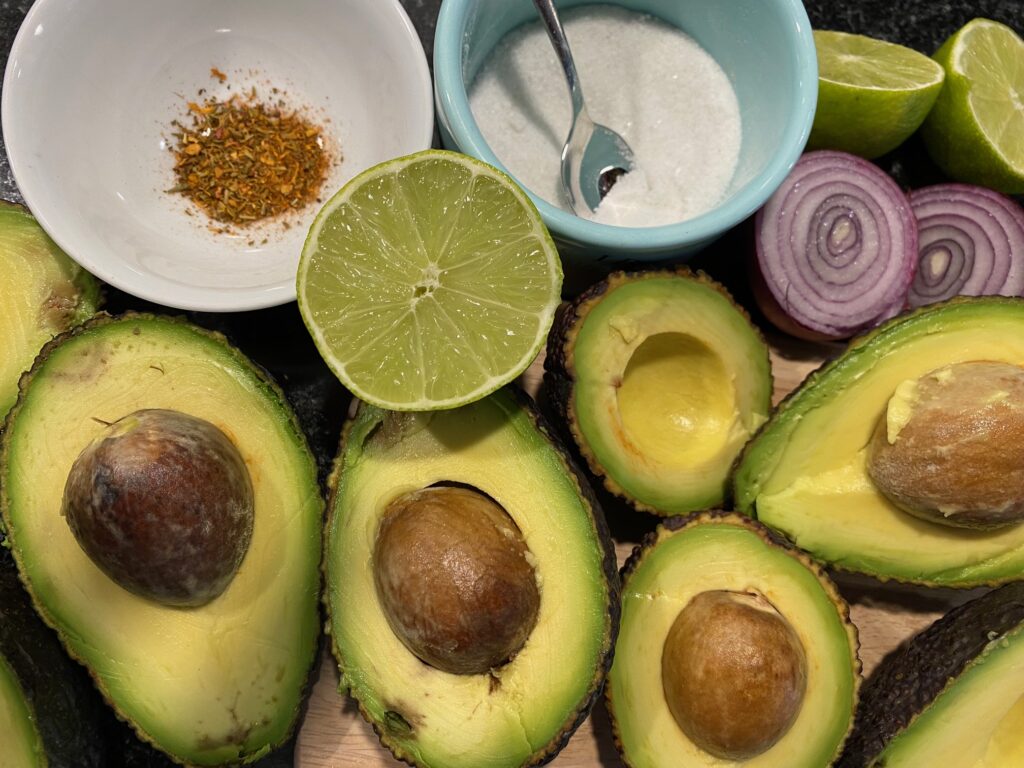
- Mash the Avocados: In a medium bowl, use a fork to mash the avocados to your desired consistency.
- Soak the onions: Mix the finely chopped onion with the salt and lime juice. Let it soak for a few minutes.
- Mix it: Mix the mashed avocados with the herbs and the onion-salt-lime soak. Adjust more salt and lime juice to taste. Set aside.
Salad Components:
- 1 sweet mango, peeled and cut into bite-sized pieces
- 1 cup chopped red cabbage
- 3-4 large, green lettuce leaves
- 1/2 cup alfalfa sprouts
- A handful of fresh cilantro, roughly chopped
Assemble the Bowl:
- Layer the Greens: In a large bowl or individual serving bowls, start by laying a bed of lettuce leaves.
- Add Color: Assemble the chopped red cabbage, the alfalfa sprouts and the mangoes in colorful “sections” over the lettuce for a vibrant contrast. The sweet mango will complement the tangy guacamole.
- Add Dressing: Splash a bit of salad dressing over the greens and cabbage section of the bowl (spare the mango).
- Spoon the Guacamole: Dollop generous scoops of guacamole over the salad.
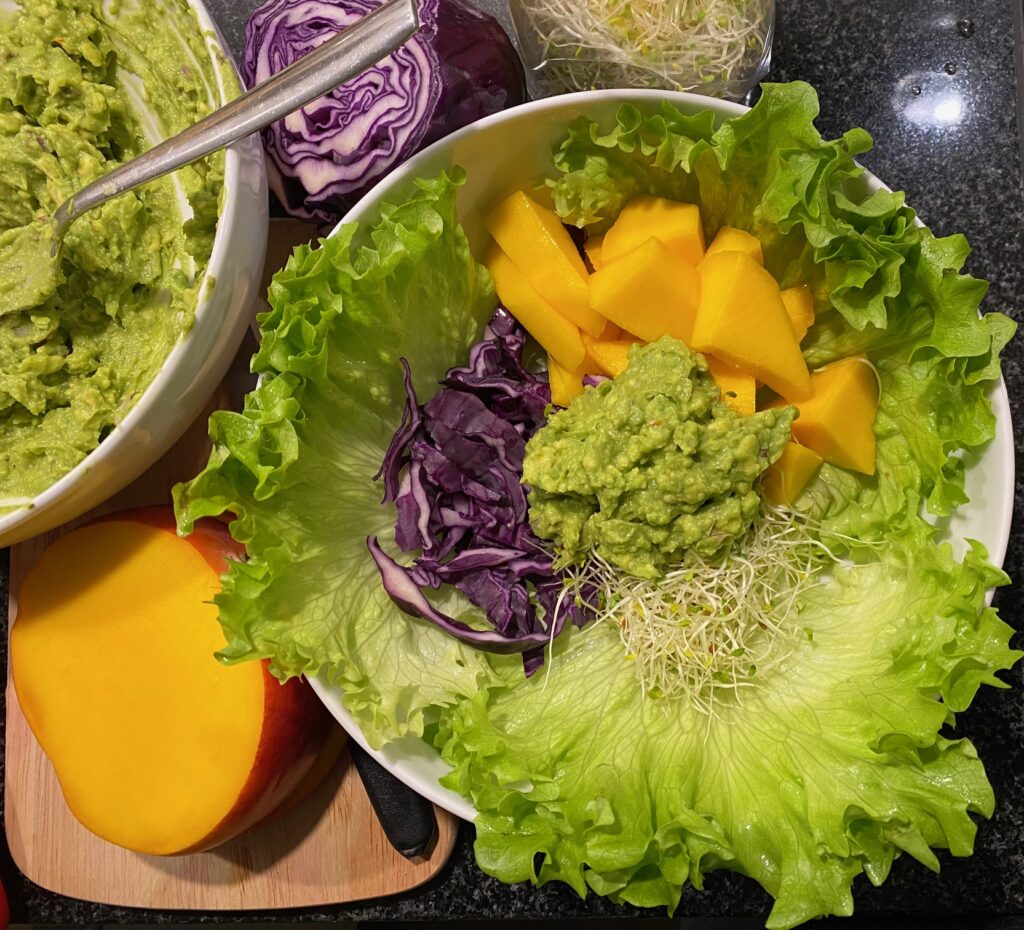
Serving Suggestions:
- Dressing: This bowl is flavorful on its own, but you can add a salad dressing.
- Crunchy Toppings: Add toasted nuts or seeds for a crunchy texture.
- Extra chlorophyll: Add some microgreens or extra cilantro
- Serve Immediately: This salad is best enjoyed fresh, as the avocado and mango can brown if left for too long.
Enjoy your “Guacamole Meets Mango Bowl” – a delightful mix of creamy, tangy, sweet, and crunchy flavors!


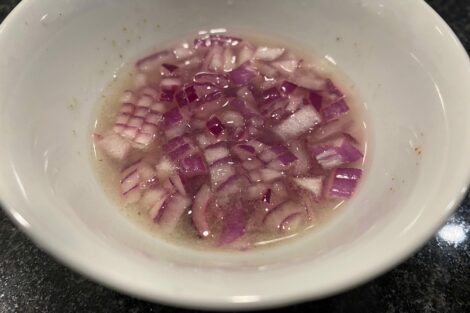
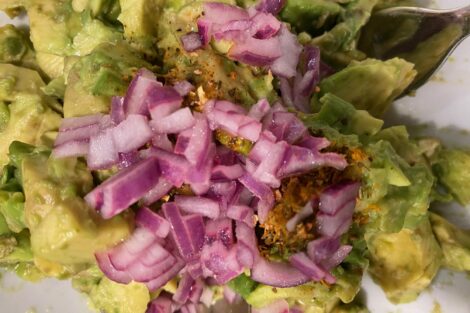
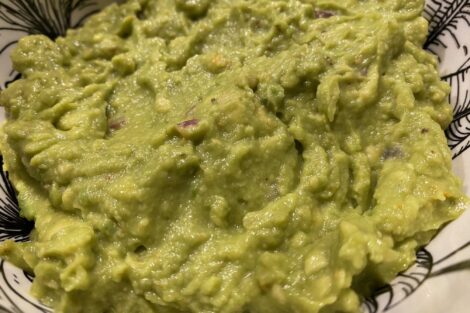
Add Comment